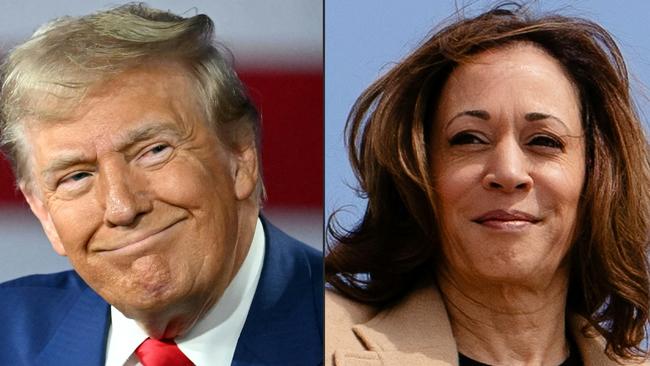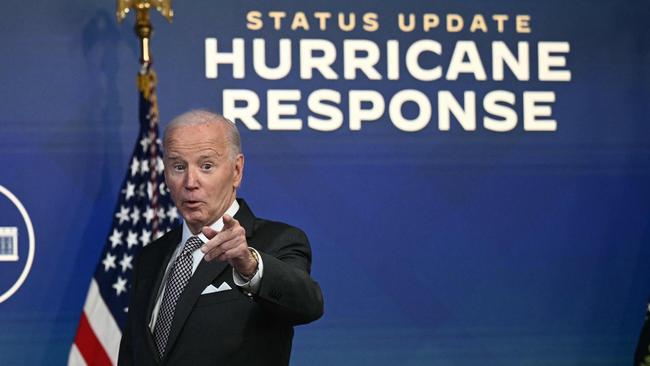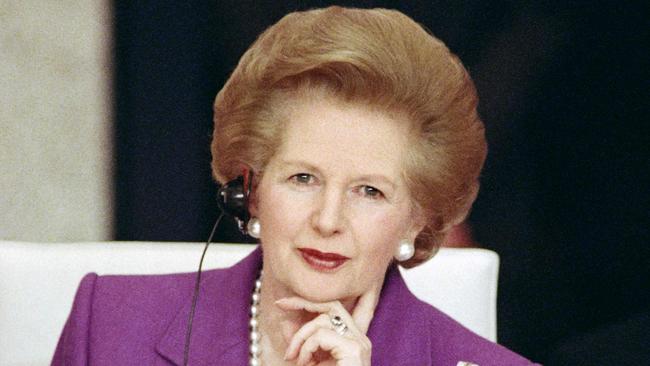Trump v Harris: neither aspirant appears up to the task
The American political system has many strengths. But one of them is not the method by which US political parties choose candidates for presidential elections.

That masterful Democrat strategist, James Carville, is given the credit for suggesting the aphorism “It’s the economy, stupid”, which Bill Clinton used to great effect when he won the presidential election in 1992.
That pithy phrase left no one in any doubt that the state of the American economy was, in the eyes of Clinton, overwhelmingly more important than any other issue in the campaign.
As millions of Americans and countless others lament the choice between Donald Trump and Kamala Harris that faces American voters in November, I am tempted to both plagiarise and vary Carville and make it: It’s the system, stupid.
For a mixture of reasons neither aspirant appears up to the task, involving, as it does, leadership of the free world.
Only 12 years ago US voters chose between Barack Obama and Mitt Romney – different but both highly talented men.
In 2020 a less aged-impaired Joe Biden fronted Donald Trump. Trump would fail the ultimate democratic test for any true believer – to leave the field when the umpire’s finger finally goes up.

This is no smug observation on the choices thrown up by the American political system. That mighty arsenal of democracy, and security bedrock of the free world, has countless strengths. But one of them is not the method by which US political parties choose candidates for presidential elections.
On this score, Australia’s Westminster system of parliamentary government is clearly superior to the US presidential system. There is no way that under a parliamentary system Harris or Trump would have been chosen by their respective parties to square off.
An American president is both the head of state and the head of government. In Australia those roles are divided. The head of state is the monarch, Charles III. The Governor-General, Samantha Mostyn, performs her largely ceremonial duties in accordance with our Constitution and is our effective head of state. Other nations treat our prime minister as Australia’s undisputed leader.
In Australia the prime minister and other ministers must always be members of parliament.
In turn the prime minister must have majority support in the lower house of parliament – the House of Representatives. He or she is almost always the leader of the largest party in the parliament.
By contrast, a US president can never – contemporaneously – serve as a member of either house of congress, although Obama, John Kennedy and others had previously served as US senators, before seeking the presidency.
Described in a more formal sense, in Australia the executive (the prime minister and other ministers in the government) must be drawn from and answerable to the parliament. In the US that is never the case. President Biden is not a member of congress. Nor is any member of his administration, such as the Secretary of State.
In the US, the complex and time-consuming primary process denies to members of congress the direct power exercised by parliamentary members of the Labor Party and the opposition Coalition parties.
The great strength of our system is that the ultimate decision about who should lead a political party is dominated by those who have been better able than others to assess the qualities of those who seek to lead. That group is of course their fellow members of parliament. They spend a lot of time together and are familiar with the strengths and weaknesses of those seeking their support.
This is not the case in the United States. The primary system that chooses presidential candidates involves hundreds of thousands. Inevitably, only a very small number of those participating will have been able to directly observe the qualities or otherwise of those seeking their party’s nomination.
By contrast, a parliamentary system, which strictly limits the choice of a party leader to currently serving members of parliament, means that only those who know the rival candidates well have a say.
I was leader of the federal parliamentary Liberal Party and thus leader of the opposition because I enjoyed majority support among my fellow parliamentary Liberal colleagues. I remained the prime minister because I continued to enjoy that support.
The same could be said of Bob Hawke, in my view the most able Labor prime minister Australia has had.
Between 2009 and 2018 there were four changes of prime minister; on each occasion the occupant of the Lodge lost majority support within his or her respective parliamentary party and was replaced by another member of the same parliamentary party. I offer no views on the wisdom or otherwise of those changes.
I strongly oppose any dilution of the exclusive power resting in the hands of senators and MPs belonging to the majority party in the House of Representatives. At present the Labor Party has something of a hybrid system, which affords, in particular circumstances, a role to non-parliamentary members of that party. The Liberal Party should not be tempted to emulate this.
Let me invoke the experience of Margaret Thatcher, former prime minister of Great Britain, the birthplace of parliamentary democracy. The political system of that country is similar to that of Australia.

When Thatcher sought the leadership of her party in 1975 only Conservative MPs in the House of Commons had a vote. They voted strongly for the Iron Lady and on the first ballot she knocked out the former Tory prime minister, Edward Heath. Some years later the Conservative Party’s method of choosing a leader was altered to the one now obtaining whereby the parliamentary party reduces the field (if there are more than two candidates) to two in number. The final choice is then made by the mass membership of the Tory party. That is the process applying now as the party chooses a Conservative leader to replace Rishi Sunak.
In my judgment, if the current Conservative party system had been in operation in the 1970s Heath could well have defeated Thatcher. He was better known by the membership at large who would have felt a greater personal loyalty to him as he had won power from the Labour Party only five years previously.
Significantly, Conservative MPs had directly witnessed Thatcher’s strong parliamentary performances, which led to so many of them supporting her.
Our political system is far from perfect. We can always learn from others. Part of that learning is to hold fast to what works better. There is a message for Australia in the modern-day American dilemma. Our system of choosing contestants for the most powerful position in the land is superior to that of the United States.
John Howard was the 25th Liberal prime minister of Australia, 1996-2007.




To join the conversation, please log in. Don't have an account? Register
Join the conversation, you are commenting as Logout